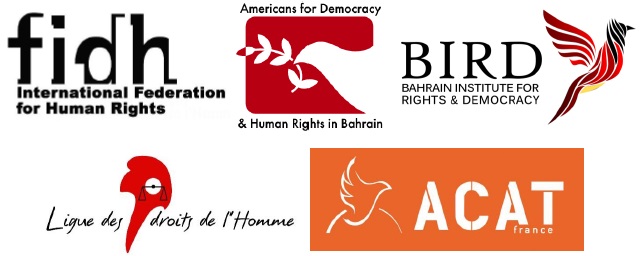26 August 2014 – Normandy, France – Americans for Democracy and Human Rights in Bahrain (ADHRB), the Bahrain Institute for Rights and Democracy (BIRD), the International Federation for Human Rights (FIDH), the Ligue des droits de l’Homme (LDH) and Actions by Christians for the Abolition of Torture – France (ACAT France), protest against the participation of Sheikh Nasser bin Hamad al Khalifa in the 2014 World Equestrian Games (WEG) in Normandy, France, on the grounds of alleged human rights abuse and torture. Sheikh Nasser, who has personally been implicated in directing and carrying out acts of torture, is the son of the King of Bahrain. He is scheduled to participate in the endurance discipline of the French-sponsored sporting event on Thursday, 28 August.
Well-known for his participation in the government crackdown on civil and political rights in Bahrain, during which Nasser launched a brutal campaign against athletes in particular; Sheikh Nasser has also been accused of directly engaging in acts of torture against political dissidents and respected members of the Bahraini community, including the Swedish citizen Sheikh Mohammed Habib al-Miqdad. These allegations have called into question his functional immunity within the United Kingdom, which is currently being reviewed by the Crown Prosecution Services.
This is not the first time that Sheikh Nasser’s participation in an international sporting event has caused controversy. Nasser also competed in the 2013 IRONMAN races in Miami and Berlin, drawing outspoken objections by both spectators and participants. His participation this year in the Windsor Horse Show in Surrey, UK elicited a similar public outcry.
To learn more about the campaign against Sheikh Nasser and his participation in the WEG 2014 competition, please see the following contacts below, or, follow the hashtag #TorturePrince on social media or review our Thunderclap campaign here.
For more information, please contact:
- Amanda Milani, Head of Legal Affairs, Bahrain Institute for Rights and Democracy: amanda@birdbh.org, @birdbahrain_
- Michael Payne, Advocacy Associate, Americans for Democracy and Human Rights in Bahrain: mpayne@adhrb.org, +1 (202) 621-6141 x102, @adhrb
- Julie Gromellon, Representative before the UN in Geneva, International Federation for Human Rights (FIDH): jgromellon@fidh.org, @fidh_un
Note to editors:
- Sheikh Nasser bin Hamad al-Khalifa is the fourth son of Bahrain’s king, Hamad bin Isa al-Khalifa, and head of the country’s Olympic Committee. Educated in the United Kingdom at Sandhurst, Sheikh Nasser heads many of Bahrain’s national sporting institutions as well as commanding the Bahrain Royal Guards. Sheikh Nasser has been implicated in multiple acts of torture against protestors in connection with Bahrain’s wide-spread crackdown against pro-democracy protests in early 2011. Charges against him filed in the United Kingdom on behalf of his victims have raised a review of Sheikh Nasser’s diplomatic immunity by the Crown Prosecution Service in May 2014.
- Sheikh Mohammed Habib al-Miqdad (al-Moqdad, al-Muqdad, al-Mekdad, Alsafaf), is a prominent Bahraini-Swedish religious leader, scholar, social activist and president of Al-Zahra Charity Institution for Orphans, who was arrested for taking part in the 2011 pro-democracy protests in Bahrain. During his detention, al-Miqdad claims he was blindfolded, handcuffed, and repeatedly tortured by Sheikh Nasser, who purposefully identified himself after discovering al-Miqdad had joined a protest in front of the Royal Palace. Before his trial, al-Miqdad tried to inform the presiding judge about the various acts of torture and sexual harassment that he and other prisoners were subjected to. He showed the judge more than 50 instances of electric shock on his body, and the wound left by a drill piercing his leg. Al-Miqdad is currently serving a life sentence.
A pdf version of this release is available here.
الرجاء الضغط هنا لقراءة هذه الرسالة باللغة العربي
Veuillez cliquer ici pour lire cette déclaration en français.





